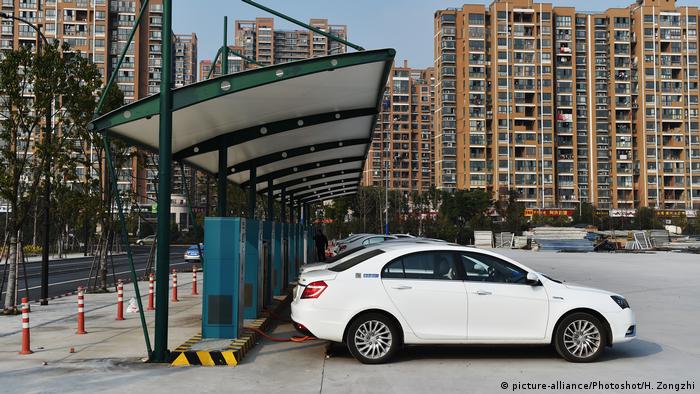We have finally actual steps taken by China in its transition into the Post Carbon Economy and leaving literally The ICE Age in the poisonous dust behind. China is The Centre of The Lithium Universe and now they are ready to start geopolitical shift which will affect everything. BYD is talking about China going all electric from 2030, but today we have the first major step in that direction with an introduction of a quota for electric cars from 2019. In short two years time, all automakers in China with over 30,000 cars in annual sales will have to produce at least 10% electric cars. It can be translated in over 2.8 million new electric cars in China being sold in 2019! Last year China has seen the fastest growth pace in three years with total auto sales climbing to 28.03 million cars. From 2020 automakers will have to produce 12% of electric cars.
Now we have a better understanding why Ganfeng Lithium: JV partner of International Lithium - was going vertical last few months. This kind of news is travelling very fast in the state corridors of power in China. This geopolitical move will have very wide political and economic implications as we have discussed it here for a long time. China is very well positioned to take the lead now and the ICE Age Of Oil is officially over.
We are reaching the tipping point this year: convergence of technology, new players who bring competition and prices down; and anti-pollution movement by the most important countries for the automakers. DIEselGate was the last drop and auto lobby cannot just swipe it under the rug anymore, consumers are not buying "Clean DIEsel".
Needless to say that lithium supply chains are not even close to the coming Tsunami of electric cars after Tesla Model S Earthquake. Countries like China and India are very serious to clean up their skies from deadly pollution and now we have lithium technology to make it possible: electric cars will take the world over much faster than a lot of people think.
Electrification of China and India will drive the next phase of the worldwide growth in EV fleet. India has announced that all new cars on sale will be electric by 2030 and they are taking it seriously making the first tender for 10,000 EVs to be supplied for the government ministries and agencies now. Transfer of the best technology for Lithium Batteries and Electric Cars will be next. China is already The Centre of The Lithium Universe and exercises its state-level New Energy Plan step by step with the military discipline, starting with securing a Lithium Supply Chain.
LEGAL DISCLAIMER
DW:
China sets new deadline for electric car quota
China has set a 2019 deadline for global carmakers to meet new quotas for so-called New Energy Vehicles (NEVs), meaning their annual sales in China must hit a specific threshold of electric cars or plug-in hybrids.
China will require automakers to comply with a cap-and-trade auto emission rule starting from 2019, the Ministry of Industry and Information Technology announced on Thursday. Car companies with annual sales of more than 30,000 vehicles would have to meet a quota of 10 percent being New Energy Vehicles (NEV's), meaning all-electric battery vehicles or plug-in hybrids, it said in a statement.
That level would rise to 12 percent of sales in 2020, the ministry added, and automakers which weren't able to meet the quota would have to buy credits.
Originally, Beijing planned for a quota of 8 percent to be introduced already in 2018. But global automotive manufacturers wrote to the Chinese authorities in June, saying the quota was "impossible" to achieve and urging a softening of the proposal.
Industry pushback
The June 18 letter was the most cohesive pushback yet from the industry against ambitious NEV targets in the world's biggest auto market. The strict new rules also included harsh penalties for non-compliance, such as the cancellation of licenses to sell non- electric cars in China.
"At a minimum, the mandate needs to be delayed a year and include additional flexibilities," auto industry officials demanded.
They also called for equal treatment of Chinese and foreign makers. Currently foreign carmakers are excluded from getting full subsidies for NEV's and batteries, leaving foreign manufacturers at a disadvantage.
Chinese manufacturers are the biggest producers of electric vehicles worldwide, making 43 percent of the total last year, according to consultancy McKinsey & Co.
European carmakers such as Daimler have responded to the Chinese proposals by announcing plans to ramp up local production of electric cars. US e-car pioneer Tesla said it was in talks with the Shanghai Municipal government to try to avoid a 25 percent tariff on imported vehicles.
Foreign manufacturers also wanted more credit given to plug-in hybrid cars, and for carmakers to be allowed to "bank" credits accrued from already sold cars as well as to "carry forward" credits into subsequent model years.
It wasn't immediately clear from the Ministry's statement whether those demands would be met in the new legislation."






No comments:
Post a Comment